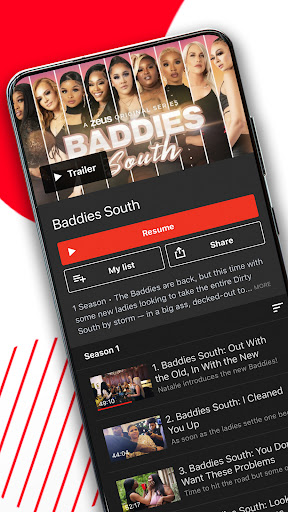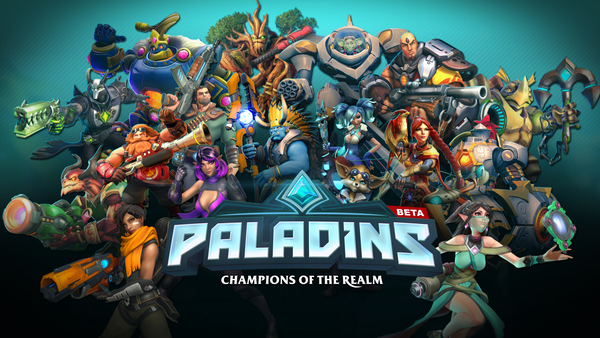Popular Now
Introduction
Zeus, the king of the gods in Greek mythology, is one of the most iconic and powerful figures in ancient lore. Known as the ruler of Mount Olympus and the god of the sky, lightning, and thunder, Zeus played a pivotal role in the myths and legends of ancient Greece. His influence extends beyond mythology into various aspects of culture, religion, and literature. This article offers a detailed review of Zeus, exploring his origins, powers, myths, and his enduring impact on modern culture.1. The Origins of Zeus
The story of Zeus begins with his birth and early life, which are central to understanding his rise to power.1.1. Birth and Early Life
Zeus was born to the Titans Cronus and Rhea. Cronus, fearing that one of his children would overthrow him, swallowed each of them at birth. However, Rhea managed to save Zeus by hiding him on the island of Crete. Zeus was raised in secrecy, growing stronger each day, destined to challenge his father.1.2. The Titanomachy: The Rise of Zeus
Upon reaching adulthood, Zeus led a rebellion against Cronus, marking the beginning of the Titanomachy—a great war between the Olympian gods and the Titans. Zeus, with his siblings by his side, defeated Cronus and the Titans, establishing himself as the ruler of the gods and securing his place as the king of Mount Olympus.2. Zeus's Role as King of the Gods
Zeus’s ascension to the throne of Olympus marked a new era in Greek mythology.2.1. The Olympian Pantheon
As the leader of the Olympian gods, Zeus presided over a pantheon that included gods and goddesses like Hera, Poseidon, Demeter, Athena, Apollo, and Artemis. He maintained order among the gods and humans, often intervening in their affairs.2.2. Symbols and Attributes
Zeus is commonly associated with symbols such as the thunderbolt, eagle, and oak tree. The thunderbolt, in particular, symbolizes his power over the heavens and his ability to punish and reward. These attributes reinforced his position as the supreme deity in Greek mythology.3. The Power and Abilities of Zeus
Zeus's power was unparalleled among the gods, and his abilities were vast and varied.3.1. Control Over the Elements
As the god of the sky, Zeus wielded control over the weather, particularly thunder and lightning. He could summon storms, create rain, and hurl thunderbolts with precision, often using these powers to assert his dominance or punish those who defied him.3.2. The Gift of Prophecy
Another significant power of Zeus was his ability to grant prophecy. He was often consulted by gods and mortals alike for guidance, and his oracles, particularly at Dodona and Delphi, were highly revered. Through prophecy, Zeus influenced the course of events in both the divine and mortal realms.4. Zeus in Mythology: Key Stories and Legends
Zeus's myths are among the most well-known in Greek mythology, and they illustrate his complex character.4.1. The Myth of Prometheus
One of the most famous myths involving Zeus is the story of Prometheus, the Titan who defied Zeus by stealing fire and giving it to humanity. In retaliation, Zeus punished Prometheus by having him bound to a rock where an eagle would eat his liver daily, only for it to regenerate overnight. This myth highlights Zeus's stern nature and his insistence on maintaining order.4.2. The Abduction of Europa
Another well-known myth is the abduction of Europa, a mortal woman whom Zeus fell in love with. Transforming into a white bull, Zeus seduced and carried Europa away to Crete, where she became the mother of his sons, including King Minos. This story is one of many that illustrates Zeus's romantic escapades and his ability to shape-shift.5. Relationships and Offspring
Zeus's numerous relationships with both goddesses and mortals led to a vast progeny, many of whom played important roles in Greek mythology.5.1. Zeus and Hera
Zeus was married to Hera, the goddess of marriage and family. Despite their union, Zeus was notorious for his infidelity, leading to a tumultuous relationship filled with jealousy and revenge. Hera's frequent attempts to punish Zeus's lovers and offspring are a recurring theme in Greek myths.5.2. The Divine and Mortal Offspring of Zeus
Zeus fathered many children, both divine and mortal. Among his divine offspring were Athena, Apollo, Artemis, and Hermes. His mortal children included famous heroes like Hercules, Perseus, and Helen of Troy. These offspring often played central roles in various myths and were considered demigods, possessing extraordinary abilities.6. Zeus in Ancient Greek Religion
Zeus was not just a mythological figure but also a central deity in ancient Greek religion.6.1. Worship and Temples
Worship of Zeus was widespread in ancient Greece, with numerous temples dedicated to him. The most famous of these was the Temple of Zeus at Olympia, which housed the Statue of Zeus, one of the Seven Wonders of the Ancient World. The temple was a major center of worship, where the Olympic Games were held in his honor.6.2. Festivals and Rituals
Various festivals and rituals were dedicated to Zeus, including the Olympic Games, which were held every four years at Olympia. These games were not only athletic competitions but also religious ceremonies that celebrated Zeus as the protector of the city and the god of victory.7. The Cultural Impact of Zeus
Zeus's influence extended beyond ancient Greece, impacting various aspects of culture, art, and literature.7.1. Zeus in Art and Sculpture
Zeus was a popular subject in ancient Greek art and sculpture. He was often depicted as a regal figure holding a thunderbolt, symbolizing his power and authority. The Statue of Zeus at Olympia was one of the most famous representations, showcasing the grandeur and majesty associated with the king of the gods.7.2. Zeus in Literature
Zeus has been featured in numerous literary works, from ancient epics like Homer's "Iliad" and "Odyssey" to modern adaptations of Greek mythology. His character has been explored in various contexts, from his role as a ruler to his relationships with other gods and mortals.8. Zeus in Modern Pop Culture
The legacy of Zeus continues to influence modern pop culture, appearing in various forms of media.8.1. Zeus in Movies and Television
Zeus has appeared in numerous movies and television shows, often portrayed as a powerful and sometimes stern deity. Films like "Clash of the Titans" and Disney's "Hercules" have brought Zeus to a new generation of audiences, further cementing his status as a cultural icon.8.2. Zeus in Video Games
Zeus is also a popular figure in video games, where he is often depicted as a formidable character with immense power. Games like "God of War" and "Age of Mythology" feature Zeus as a central character, showcasing his influence in the digital realm.9. Interpretations of Zeus in Modern Mythology
Modern interpretations of Zeus often reflect contemporary values and ideas, reimagining the ancient god in new ways.9.1. Feminist Perspectives
Some modern interpretations of Zeus explore his relationships with women through a feminist lens, critiquing his behavior and the power dynamics in his myths. These perspectives offer new insights into the character of Zeus and the roles of women in Greek mythology.9.2. Psychological Interpretations
Psychologists have also examined Zeus through the lens of Jungian archetypes, viewing him as a symbol of the "Father" archetype. This interpretation explores Zeus as a representation of authority, power, and the human need for order and structure.10. Zeus in Comparative Mythology
Zeus's character has parallels in other mythologies, reflecting common themes and ideas across cultures.10.1. Zeus and Jupiter: The Roman Equivalent
In Roman mythology, Zeus is known as Jupiter, the king of the gods. While Jupiter shares many characteristics with Zeus, including his role as a sky god and ruler, Roman interpretations often emphasize different aspects of his character, such as his connection to law and governance.10.2. Zeus and Other Sky Gods
Zeus can also be compared to other sky gods in world mythology, such as Thor in Norse mythology and Indra in Hindu mythology. These comparisons reveal common themes of authority, power, and the control of natural forces, highlighting the universal appeal of the sky god archetype.Conclusion
Zeus, the king of the gods, remains one of the most enduring figures in mythology and culture. From his origins in ancient Greece to his influence in modern pop culture, Zeus continues to captivate and inspire. This comprehensive review has explored his many facets, from his powers and myths to his cultural impact and modern interpretations. Understanding Zeus is not only a journey into the heart of Greek mythology but also an exploration of the timeless themes of power, authority, and the human condition.-
Developer
The Zeus Network
-
Category
Entertainment
-
Version
8.312.1
-
Downloads
1M
Pros
Pro
👍 1. Comprehensive Monitoring: Zeus provides comprehensive monitoring of all aspects of your application, including performance, availability, and security. This allows you to quickly identify any issues or vulnerabilities and take appropriate actions to address them.
👍 2. Scalability and Flexibility: Zeus is built to handle large and complex applications, allowing you to easily scale your application as your needs grow. It also offers flexibility in terms of deployment options, supporting both on-premises and cloud-based deployments.
👍 3. Easy Integration: Zeus seamlessly integrates with various technologies and platforms, making it easy to incorporate it into your existing infrastructure. Whether you are using a specific programming language, database, or cloud provider, Zeus can integrate with them to ensure smooth operation and monitoring.
Cons
Con
👎 1. Lack of User-Friendly Interface: One of the major shortcomings of the Zeus application is the lack of a user-friendly interface. The application can be overwhelming for new users, as it may require a steep learning curve to navigate through the various features and functionalities. This can lead to frustration and a decrease in user satisfaction.
👎 2. Limited Customization Options: Another shortcoming of Zeus is that it offers limited customization options. Users may find it difficult to tailor the application to their specific needs and preferences. This can be a drawback for those who require more flexibility in organizing their tasks and workflows.
👎 3. Inability to Collaborate: Zeus does not have strong collaboration features, which can hinder team productivity and coordination. The application lacks real-time collaboration capabilities, such as live task updates, shared calendars, or document sharing. This can be a significant limitation for users who need to work together on projects or tasks.























































